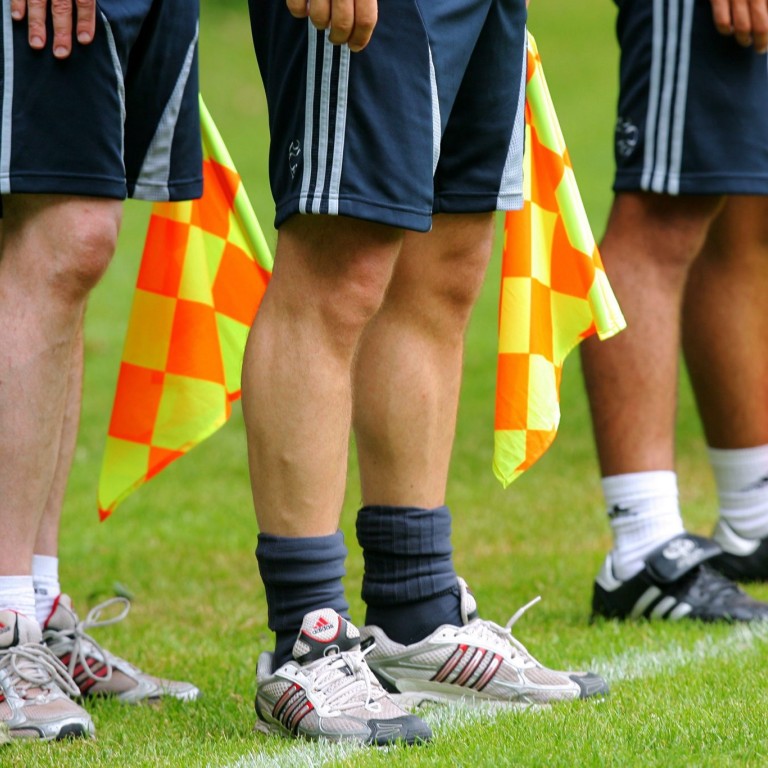
Transparency at all tiers is essential for Hong Kong's future
Officials are at the coal face when it comes to witnessing anomalies, so they should report such incidents to prevent match-fixing
Players, coaches and owners be warned: frivolous complaining about match officials could bring repercussions.
In Hong Kong, it appears clubs lodging complaints and appeals are wasting time and resources, as well as inconveniencing those involved. Whenever teams cannot accept the reality of losing or having decisions go against them, it has become common to lodge official complaints against match officials, claiming poor performance or some procedural anomaly.
Rational Ref reckons match officials should reciprocate and report unsporting behaviour and suspicious activity by teams, managers and players - particularly since the HKFA is laying down standards of good practice for clubs, such as having them submit full disclosures of interests that can help in preventing match fixing.
In addition, this honour system of self-declaration - and having match officials report on shenanigans - will perhaps prevent future bad attitudes and unsporting behaviour that many clubs in Hong Kong often exhibit.
The HKFA has in place specific standards, security and support at all First Division matches that permit some semblance of transparency and control. Unfortunately, it is in the lower tiers - the second, third and fourth divisions - where many anomalies and suspicious events attract little attention and receive little support from the HKFA. Match officials working in the lower leagues really do earn their stripes and must have thick skins, observing many irregularities, which ideally should be reported.
Last weekend, Second Division leaders Wong Tai Sin beat midtable Tai Chung 6-0 and at face value this was an expected result. However, on closer inspection Tai Chung fielded only nine players, despite reassurances from the Tai Chung coach that "other players were on their way" and "the match could go ahead" at the scheduled kick-off time.
This seemed strange - you would think teams would want the referee to wait until the last possible moment, before reluctantly starting the match at a disadvantaged position. No more Tai Chung players turned up, and it was a stroll in the park for Wong Tai Sin to secure three points and maintain their promotion place for the new Premier League for next season.
Wong Tai Sin's next and final-round match is against second-placed Wofoo Tai Po, so an "easy" match first - with practically no risk of picking up injuries and suspensions - would certainly see beneficial going into that showdown.
Tai Chung is known to be the "second" team of Kitchee and having a full squad of players is relatively easy to achieve, so why did they struggle for numbers?
Also, the experienced Tai Chung coach and players understand the importance of professional standards, as demonstrated by their Kitchee brethren, so turning up with only nine players is unprofessional. Should any match officials turn up late, teams would not hesitate to criticise them for being tardy and unprofessional.
Tai Chung's record shows they are content with midtable mediocrity. They picked up 16 points in their first 10 matches (a win-draw-loss record of 5-1-4), and 12 points in their next 11 matches (4-0-7).
Here is another anomaly, this time with Second Division side Wan Chai, who are known to be the "second" team of South China. In their first 10 matches they picked up just four points (1-1-8) and by early January were rooted to the foot of the table. They then obtained a couple of players from "friendly" South China and in their next 11 matches picked up 16 points (5-1-5) to secure their status. This is an exact repeat of last season; Wan Chai started off losing most of their matches and then miraculously became a better team.
These kind of anomalies fly under the radar, but match officials see, hear and experience them at the "coal face" of the lower-tier leagues. They are rarely reported. And if they are, little or no action is taken in terms of investigations and disciplinary sanctions.
This has contributed to the unhealthy status quo where many match officials do not feel sufficiently supported to bother reporting anomalies and where many local clubs disrespect the game, match officials and competition organisers because they know they can get away with any shenanigans.
The HKFA, under Project Phoenix, is taking great strides to improve the "hardware" of local soccer that will help grow the future of the sport. However, of parallel importance is the "software", which clearly needs to be rebooted. The disrespectful and contemptuous attitude of clubs, coaches and players needs to be addressed.
Although competition organisers overlook referees - regarding them only as a minimum-standard necessity - they can do so much more. They can help be the eyes and ears, and take the pulse of the local game.
They are therefore an invaluable, and as yet unrealised, resource to help competition organisers instil better standards in the local culture, provided they are given proper protection and support.

